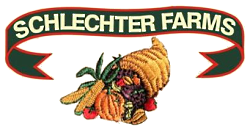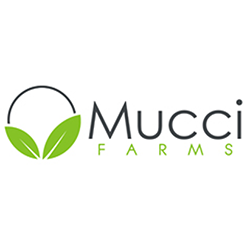Heirloom tomato cultivation is quite literally a labor a love. While modern hybrids are bred for traits like disease resistance, heirloom varieties have minimal such protection. But anyone who's tasted a perfectly ripe heirloom, understands the flavor is worth the fight.
Durham, N.C.-based grower Happy Dirt is up to the challenge. The season for its organic heirloom tomato program began in June, and large-volume availability will last through the end of August, the company says.
“In western North Carolina, the window for field-grown organic heirloom tomatoes is small but fruitful,” said Taylor Holenbeck, Happy Dirt's grower services coordinator. “But because our farmer partners also grow in high tunnels and greenhouses, they are able to extend the growing season for their heirlooms.”
The organic produce grower and distributor partners with a couple of farms across western North Carolina that commercially grow organic heirloom tomatoes, but it's Happy Dirt farmer-owner Sanford Fishel who is helping the company put organic heirloom tomatoes on the map in North Carolina, the company says.
Because heirloom tomatoes are open-pollinated and not hybridized for specific traits, such as disease resistance or high yields, some heirlooms can be a bit more challenging to grow in the field. Fishel has found a way to defy the odds, the company says.

“It's incredible that Fishel is able to continuously increase his organic heirloom tomato production and grow so many different, older varieties. It's rare to see farms at their scale saving seeds year after year, and not opt for hybrid varieties,” says Holenbeck. “Seed saving has always been an important part of farming and will continue to be a critical practice as seed costs go up for farmers, fewer seed companies control the market, and the climate shifts.
“If our farms can grow crops that are well adapted to their farm and cut their costs, the more resilient they will become in an ever-changing climate and industry,” Holenbeck continued.
Fishel's success with scaling his organic heirloom tomato production is due to the rich soil and temperate climate in western North Carolina, as well as his use of high tunnels to extend the specialty commodity's growing season, the company says.
But Fishel says his knack for growing heirloom tomatoes was passed down to him by his father and grandfather.
“My dad always prided himself in having nice tomatoes,” says Fishel. “He grew some of the old originals like rutgers and some of those that are still around but that are not quite as popular as they once were. My grandfather was the same way.”
Fishel grows anywhere from 15-17 different organic heirloom varieties. Some of the most common heirloom varieties he grows include beefsteak, Brandywine and Cherokee purple. Among some of the most unique varieties he grows are chocolate stripe, indigo rose and pineapple.
For consumers who don't know which heirloom tomato to try first, Fishel recommends starting with the pineapple variety.
“My favorite sandwich heirloom tomato out of all of them is the pineapple. They are sweet and have a great tomato flavor.” he says. “Most of the time they hang over the bread on each side.”
With the success farmers like Fishel continue to have in producing organic heirloom tomatoes, Happy Dirt says it's well-positioned to meet the growing interest in and demand for the specialty commodity item.
Related: Consumer education a major part of Happy Dirt marketing
Happy Dirt, formerly known as Eastern Carolina Organics, is an organic produce distribution company that was founded in 2004 by Sandi Kronick with a grant from the North Carolina Tobacco Trust Fund as a way to support the state's tobacco farmers in their transition from tobacco production to organic produce production.
In 2005, a handful of farmers were given ownership stake in the company, which now has 16 farmer owners and two staff owners. Since its founding, Happy Dirt says it has helped individual farmers increase their organic production from 3 to 5 acres to over 400 acres and has paid over $40 million to farmers.
The company says it now works with over 100 farms across the United States, bridging the food system while working to strengthen its regional food system.












